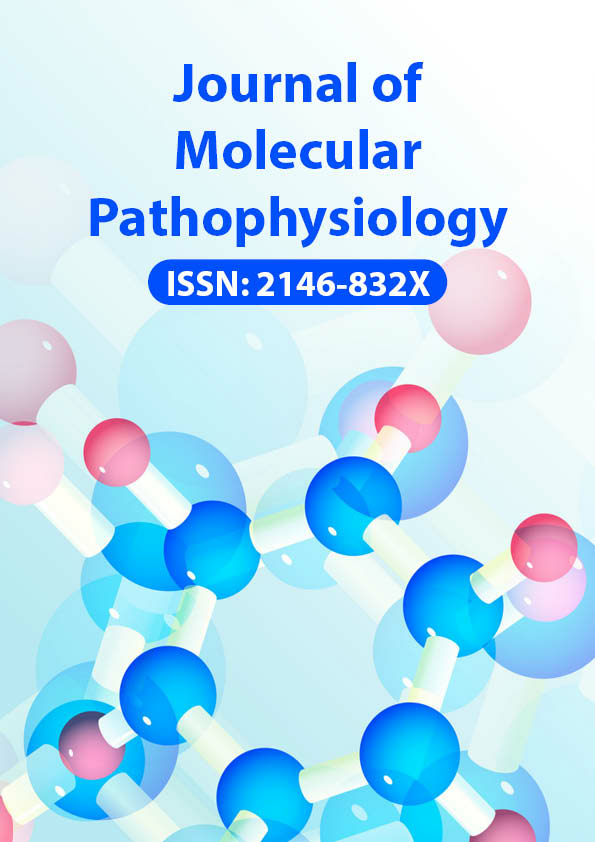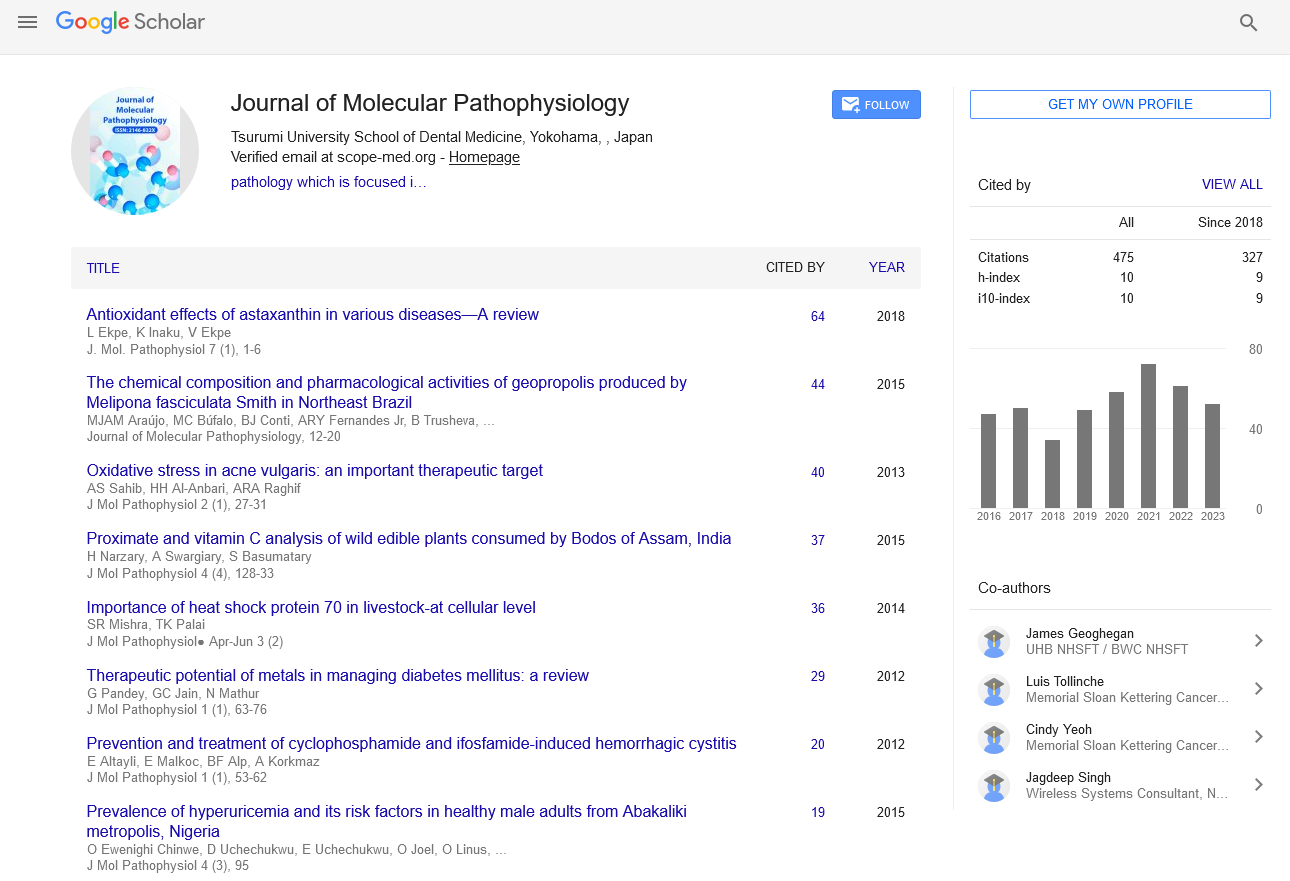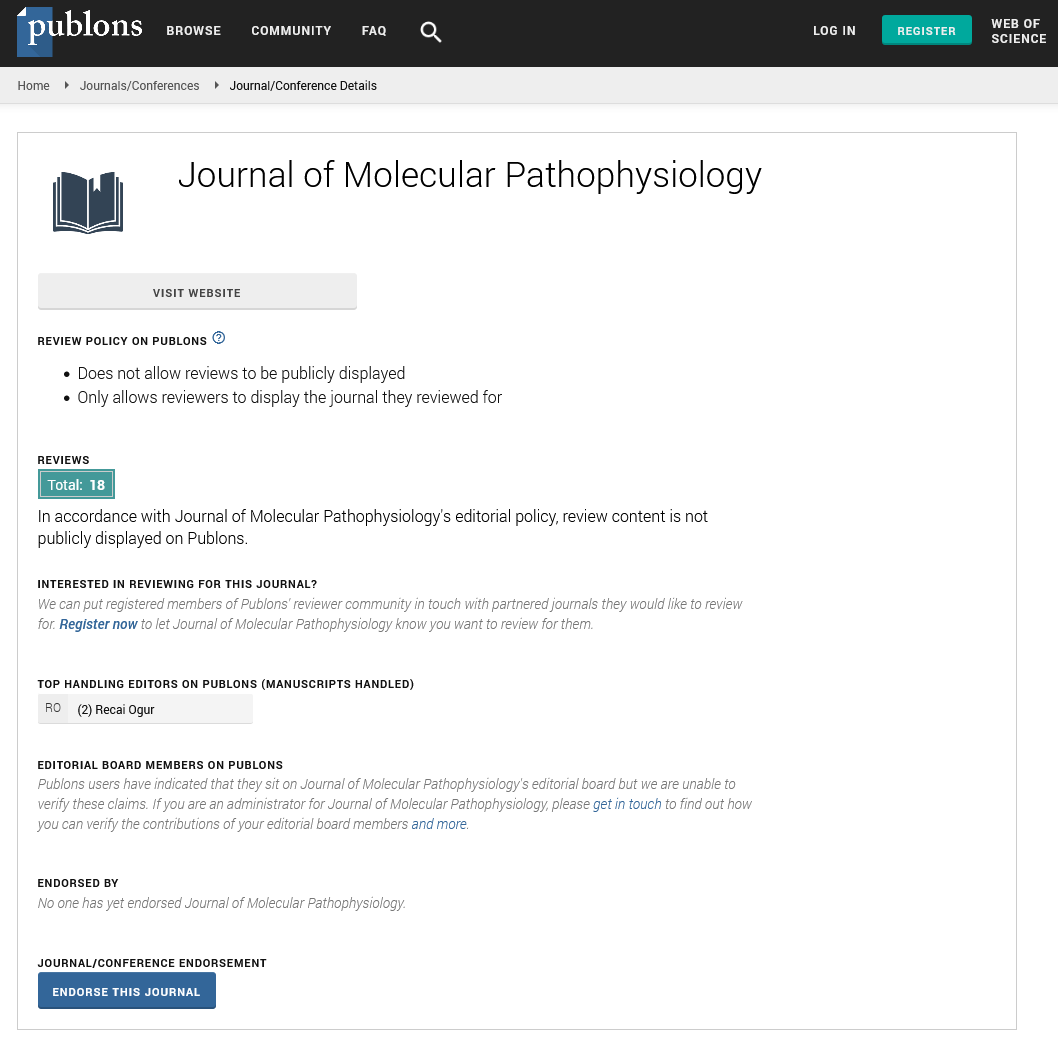Editorial - Journal of Molecular Pathophysiology (2021)
Carcinogenic mutations and Genomic alterations
Fabrice Andre*Fabrice Andre, Department of Pathology and Comprehensive Cancer Center, University of Alabama, United States, Email: andre811486@gmail.com
Received: 09-Jul-2021 Published: 30-Jul-2021
Multiple genetic and epigenetic occasions symbolize tumor development and outline the identification of the tumors. Advances in high-throughput technologies, like gene expression profiling, next-technology sequencing, proteomics, and metabolomics, have enabled distinctive molecular characterization of diverse tumors. The integration and analyses of those high-throughput records have unraveled many novel molecular aberrations and community changes in tumors. Multiple genes/enzymes that play a function in DNA and histone adjustments also are altered in diverse cancers, converting the epigenomic panorama at some stage in most cancers initiation and development. Apart from proteincoding genes, research are uncovering the essential regulatory roles performed through noncoding RNAs and noncoding areas of the genome at some stage in most cancers development. oncurrent advances in genome-modulating technologies, like gene silencing and genome editing, are presenting cappotential to apprehend in element the manner of most cancers initiation, development, and signaling in addition to commencing up avenues for healing targeting. The DNA collection of a most cancers mobileular genome typically acquires a fixed of aberrations or somatic mutations. These encompass substitutions, insertions, or deletions of small or massive fragments of DNA, genomic amplification, and rearrangements. In addition, absolutely new DNA sequences are obtained from human papilloma virus, Epstein Barr virus, hepatitis B virus, human T lymphotropic virus, and human herpes virus 8, which might be recognised to make a contribution to the genesis of 1 or extra kinds of most cancers. Somatic mutations, on the idea in their function, include motive force mutations, which confer increase benefit to the most cancers cells and had been undoubtedly decided on at some stage in most cancers development. It is usually recommended that the breast, colorectal, and prostate require 5 to seven motive force mutations for most cancers initiation and development, while hematological malignancies can also additionally require fewer. The chromatin-enhancing enzymes act on histones in a fantastically regulated manner. As many as 4 exclusive DNA adjustments and sixteen lessons of histone adjustments had been diagnosed. Chromatin shape is altered through those adjustments each domestically and globally, relying at the interest and specificity of the enhancing enzymes. These adjustments serve more than one functions at some stage in most cancers initiation and development. Some adjustments function docking webweb sites for unique proteins which can mainly apprehend those adjustments. Other adjustments, like histone H3 acetylation and methylations, regulate the chromatin compaction and rest status, main to repression or activation of transcription, as a consequence regulating gene expressionNumerous research discovered a myriad of obtained changes in most cancers. The alternations/mutations are heterogeneous and discovered amongst exclusive tumors. Some of the extra not unusualplace genomic changes encompass reproduction quantity versions, which includes amplification or deletion of the genomic areas. Again, the genomic sequencing the use of nexttechnology sequencing (NGS) generation supplied possibility to symbolize genome-huge reproduction quantity versions with brilliant resolution. These genomic occasions determined encompass mutations withinside the protein-coding genes, which result in both activation of oncogenes or inactivation of tumor suppressors. In that, nonsynonymous substitution and truncating mutations are of unique interest. Chromosomal rearrangement and gene fusions are some other not unusualplace elegance of genomic aberrations in most cancers. After the invention of Philadelphia chromosome in 1960 as a particular chromosome extrade in persistent myeloid leukemia, more than one research have proven the prevalence of fusion genes in sort of cancers and via many exclusive approachesSome of the gene fusions diagnosed in epithelial tumors encompass RAF kinase pathway gene fusion, which includes BRAF in gastric and prostate most cancers.







